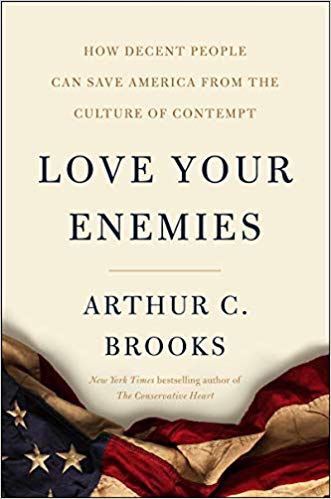Why has the tone of our political discourse degraded so in recent years? Arthur Brooks, president of the American Enterprise Institute, economist, musician, and author has been giving this a great deal of thought. In this episode, he joins host Russ Roberts to talk about his book, Love Your Enemies. How can we create an atmosphere absent the contempt Brooks sees as having invaded our politics? Is the purpose of political discourse to persuade or just put down? Contempt, Brooks argues, is simply the wrong way to be persuasive. So what ought we to do to improve the quality of our political discourse today? We hope that conversations such as this one are one small step toward that end. But what else is there?
1- Brooks says that the problem with”the culture of contempt” isn’t anger, but “the conviction of the utter worthlessness of another person.” How do people get in the habit of contempt? How is this habit of contempt similar to the phenomenon of addiction, according to Brooks?
2- Brooks suggests a need for reprogramming the part of your brain that reinforces habitual behavior as a means to better and more civil conversational opportunities. On what basis does he offer this suggestion? What are some ways one might go about such reprogramming? (Roberts references this episode on meditation with Robert Wright during this part of the interview.) Have you had any successes in this regard?
3- Why does Brooks assert that playing the French horn taught him everything he needed to know to be an effective president of AEI? What examples from your own life offer a similar example? What does this story suggest about the characteristics of a good leader?
4- What does Brooks mean by the “dignity gap?” What does dignity require, according to Brooks?*
5- In discussing the possibility of a set of core American values, Roberts asks Brooks, “What are we going to rally around? What shared values do you think we have? Because, I see so many now across the political spectrum we don’t share.” How does Brooks respond, and what does he suggest in response? What is our shared story, as Jill Lepore might call it? What role for ideological diversity is there in American culture?
* You may wish to listen to this more recent episode with Chris Arnade on the subject of dignity. There is also an Extra to complement this episode.



Comments are closed.